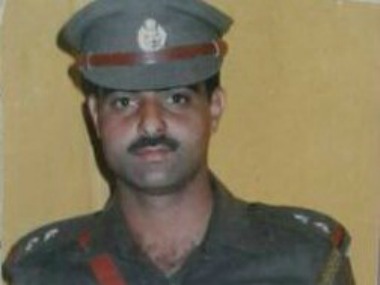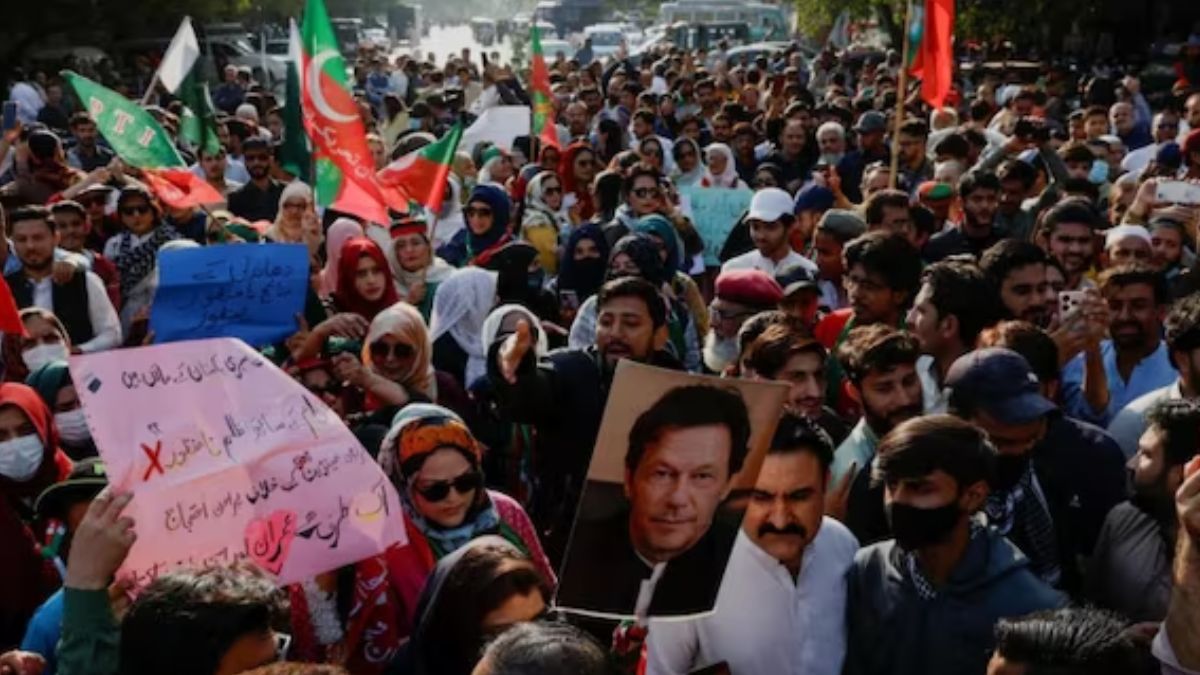The lynching of Deputy Superintendent of Police Ayub Pandith on Thursday night has horrified many Kashmiris. Even after the mayhem and bloodshed that the Valley has seen over the past 50 weeks, this killing was shocking.
Pandith, a Kashmiri Muslim from Srinagar, was at one of the gates of the historic Jamia Masjid in the heart of Downtown Srinagar (the old part of the city). After an altercation, during which Pandith fired in the air to try and push back his attackers, a mob pounced on him, relentlessly pummelling and kicking him to death.
Ironically, Thursday (when the incident took place) was the night of Shab-e-Qadr, the night during the last week of Ramadan on which Muslims believe all their sins may be forgiven. It is a night of intense prayer.
Equally ironic is the fact that the mob dragged Pandith’s body to the point beyond Khanyar Chowk from which a lane ends towards the shrine of Makhdoom Sahib, the patron Sufi saint of the city whom many Kashmiris have for centuries regarded as the real king of Kashmir.
Sufi rejection The gruesome lynching presents a contrast to the Sufi sentiments with which Kashmiris have identified traditionally. Even Indira Gandhi used to visit the shrine when she was the prime minister. The lynching also brings to mind parallels as well as differences with three seminal events from Kashmir’s history.
The most obvious incident that comes to memory is the killing of the SHO of Maisuma on the road outside his police station in January 1990. His body lay on the road for a while before a civilian worker picked it up; such was the terror that had then clamped the force.
The contrast between that event and this one is that militants used firearms to kill the SHO of Maisuma. The purpose was to break the morale of the force. It can be compared with a recent ambush during which the SHO and five other police personnel of Achabal police station were killed. Pandith, on the other hand, was beaten and kicked to death by a mob with vengeful anger.
This too could affect the morale. But, it could also generate anger and insensitivity, if not vengeful cruelty among other officers and security men. That would suit those who want more conflict, killings and even the sort of vicious brutality that accompanies war. There are many such people in the Valley.
Historical echoes
The lynching carried an echo of the gruesome murder of 23 Pandits at Wandhama near Ganderbal in 1998. That too was the night of Shab-e-Qadr. Many Kashmiris found it tough to believe that any God-fearing Muslim would commit such a fiendish act on a holy night like Shab-e-Qadr. But last night’s lynching was done by men who had specifically gone to the historic central mosque to beg forgiveness for their sins.
That’s not the only irony though. The road on which the mob dragged Ayub’s body leads to Srinagar’s Central Jail. Eighty-six years ago, on 13 July 1931, another mob had carried 21 bodies from the jail to the Jamia Masjid — before heading towards Maharaj Gunj to vandalise the shops of Kashmiri Hindus, who are known as Pandits.
Parallels and contrasts
It’s worthwhile to compare the current situation with what happened in 1931 and 1990. The 1931 uprising was sparked by a massive wave of support for a radical speech by a visitor called Abdul Qadir. By August, that uprising had turned Sheikh Abdullah into the iconic symbol of Kashmiri aspirations. Over the next couple of decades, he steered the movement towards liberality, social inclusion and economic equality, but now all that seems like a distant dream, almost a mirage.
The militant insurgency that began in July 1988 was for an ambivalent ‘azadi’ (freedom). It was launched under the aegis of Jammu and Kashmir Liberation Front (JKLF), whose founders in Muzaffarabad were generally Leftist secularists. But the militant commanders the organisation recruited in the Valley had been shaped by blinkered Islamism. In any case, Pakistan ditched them in favour of the distinctly Islamist and pro-Pakistan Hizb-Ul-Mujahideen in the very month in which the Maisuma SHO was killed.
As a welter of killings gathers momentum this summer, the lead has been seized by teenagers who reject any kind of nationalism or democracy. Former Hizb-Ul-Mujahideen commander Zakir Musa personifies this trend and adds a radical Islamist touch to it. He has associated himself with Al-Qaeda and the previously unheard-of ‘Kashmir Taliban’. Such radicalism has been evident in south Kashmir over the past few months. The hate-filled viciousness of the attack that killed Pandith in the heart of the city indicates another trend, which may be no less unsettling.


)




)
)
)
)
)
)
)
)